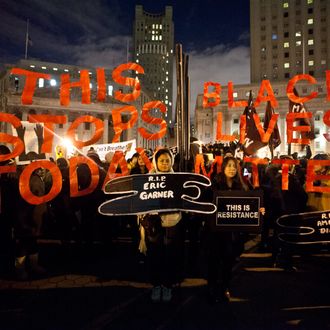
Staten Island, Ferguson, Baltimore: Cities forever changed, tense race relations pushed to the forefront of the American Zeitgeist.
Show Me a Hero, HBO’s new miniseries tackling themes of home, race, and community in Yonkers, takes place in the late ‘80s. However, its premise couldn’t be more appropriate for today’s social consciousness. Set to premiere on August 16, the show opens with a young mayor facing a federal court order to build low-income housing units in the white neighborhoods of his town.
With race and class issues on the brain, the show’s producer and director — plus plenty of other stars and guests attending the premiere — weighed in on the climate in 2015.
What do you think is next for Black Lives Matter?
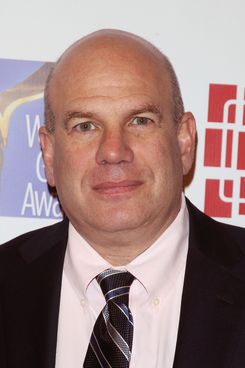
David Simon, writer and executive producer
“I think there has to be a real reconsideration of the entire drug war and mass incarceration. That started with — the president has entered the discussion and has been progressive and that’s good but you’re going to start seeing it at a state level. In fact, you’re already seeing it in places like Georgia. You’ve got a red state like Georgia with a Republican governor and they’re emptying prisons and letting nonviolent offenders back into the community. When a red state sees that mass incarceration is not the way to go and you have a [inaudible — sounds like he said ‘die-hard Republican’] governor, something’s turned in the national consciousness. Two million people in jail, many of them for nonviolent offenses, that had to end. That was draconian, it was un-American. It is un-American.”
Paul Haggis, director and executive producer
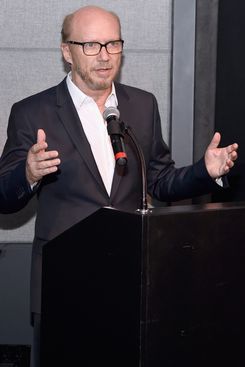
“It’s kind of shameful that you need to have a moment like Black Lives Matter, isn’t it? I mean, really? But I guess you do because it’s true. Look at our prisons right now — there’s a disproportionate number of black people in prison and a disproportionate number of job opportunities. We have to reinvent America. It’s not just good enough to say, ‘Oh, we fixed that.’ We have to reinvent [what] we are. It’s not a black issue, a white issue, it’s just an issue of fairness. That’s all it is — just basic fairness. Everybody should get the same shot.”
Natalie Paul
“Honestly, as an actor I hope it has something to do with the heart; I hope it has something to do with really penetrating the spirit of people and really reaching people. I think it’s up to the rest of the world what happens to Black Lives Matter to be honest with you — to see how they do. We’re on our way, but we have a lot of work to do.”
LaTanya Richardson Jackson
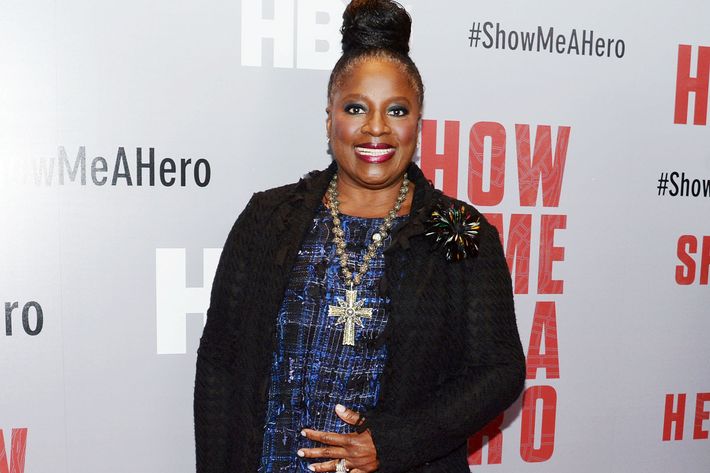
“That’s a huge question. That’s a major, big question. I don’t know where we’re headed. If we don’t learn how to sit down at a table and sort of invite dialogue and be respectful as we engage in that dialogue, we’re all going to perish, that’s where we’re headed. I don’t just mean black and white in America. In the world. If the world does not learn how to at least honor who we are as a people, who each human being is, we’re all slated to perish in hell, that’s as far as I can see. I think that in America, of course it would start first for us, if we can establish a way for everyone to understand how racism has forced a different contingency of people to live a certain way, and how those people who are the victims of racism can learn to say, ‘Okay, we’ve got to stop treating ourselves this way because of that,’ then the dialogue is going to never happen because everybody has ownership of all of the negative. We all do. Both sides do. So, I don’t know where we’re headed. I hope that this show will at least spawn some dialogue that keeps us in it. As long as each person can make themselves a committee of one — that wherever they are, that increases the dialogue about who we are — then people can understand it’s not where you live, it’s how we live.”
What do you think race relations over the past year in the U.S. have shown?
Dominique Fishback
“I get so emotional about the whole situation because Eric Garner was a family member of mine [his wife is my mom’s cousin], so to have that so close to home, and then to see it constantly happen … everything’s on video, it seems like nothing’s getting done, and then you get to feel helpless, and then with a show like Show Me a Hero, you see people actually writing and caring about what’s going on. TV can be used for a positive change and stories and empowerment … You can only hope for the best, right? So, I don’t know where we’re headed, but I know that there’s artists like David Simon and other artists that care about the issue, and if we keep putting it out for the world to see, it can’t be ignored for that much longer hopefully.”
Carla Quevedo
“Recent events in American history like Ferguson really tell us that even though we’ve moved as a society, [that] we’re better now … unfortunately segregation, discrimination remains. Maybe we’re not so vocal about it any more. Fear is still within us. We’re still afraid of what we don’t know. People coming here from other countries, we’re afraid they’re going to take our jobs, our security. This show really shows both sides of the spectrum, and it’s really interesting because it says something about how we act. It’s not just entertainment — it’s very entertaining, but it’s something deeper than that. I feel like television needed something like this — we’re entertained way too much, and we need to start thinking again.”
Laura Gomez
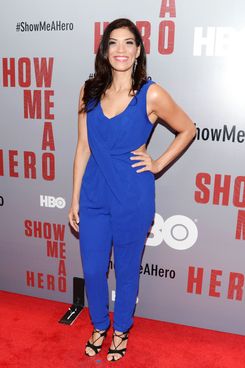
“Our country needs social surgery, I think. I don’t know if it’s the result of changes happening in the world altogether. When changes are occurring there are ugly things that happen — I’m hoping that good things will come because it’s the essential nature of these things. But we really, really are in a deep need of soul-searching in this country. It’s such a hard thing to analyze but one of the main problems in this country has to do with education overall. I think the lack of access of education in lower-income communities and awareness of our politicians, the disconnect between the classes, I think it brings such — it’s showing us what’s happening right now. We’re not connected at all.”
Katie Couric
“Sadly, terribly polarized still. But I think there are enough people who really want to see serious change happen that I’m, overall, optimistic … at least people are becoming increasingly aware of the situation and the truth, as ugly as it’s been, is out there for all to see, so I think we have to face a day of reckoning.”
Oscar Isaac
“There’s no such thing as a post-racial United States, that’s a myth. What we talk about in this show, desegregation, the idea is that you have to desegregate schools, but you can’t desegregate schools if you have a segregated neighborhood. And there are these thinly veiled things about property values, and ‘live where you can afford’ — that doesn’t acknowledge that there’s a whole system in place that’s caused the poverty that you see in these low-income housing areas. For a long time, low-income housing was a beautiful thing when it was about WWII veterans or at the end of the Great Depression, but it was white people that were going to be in those houses. As soon as minorities came in, it became a handout. I think that bringing that back to the forefront again, this is happening in Westchester right now. I think it’s very timely and important.”





























